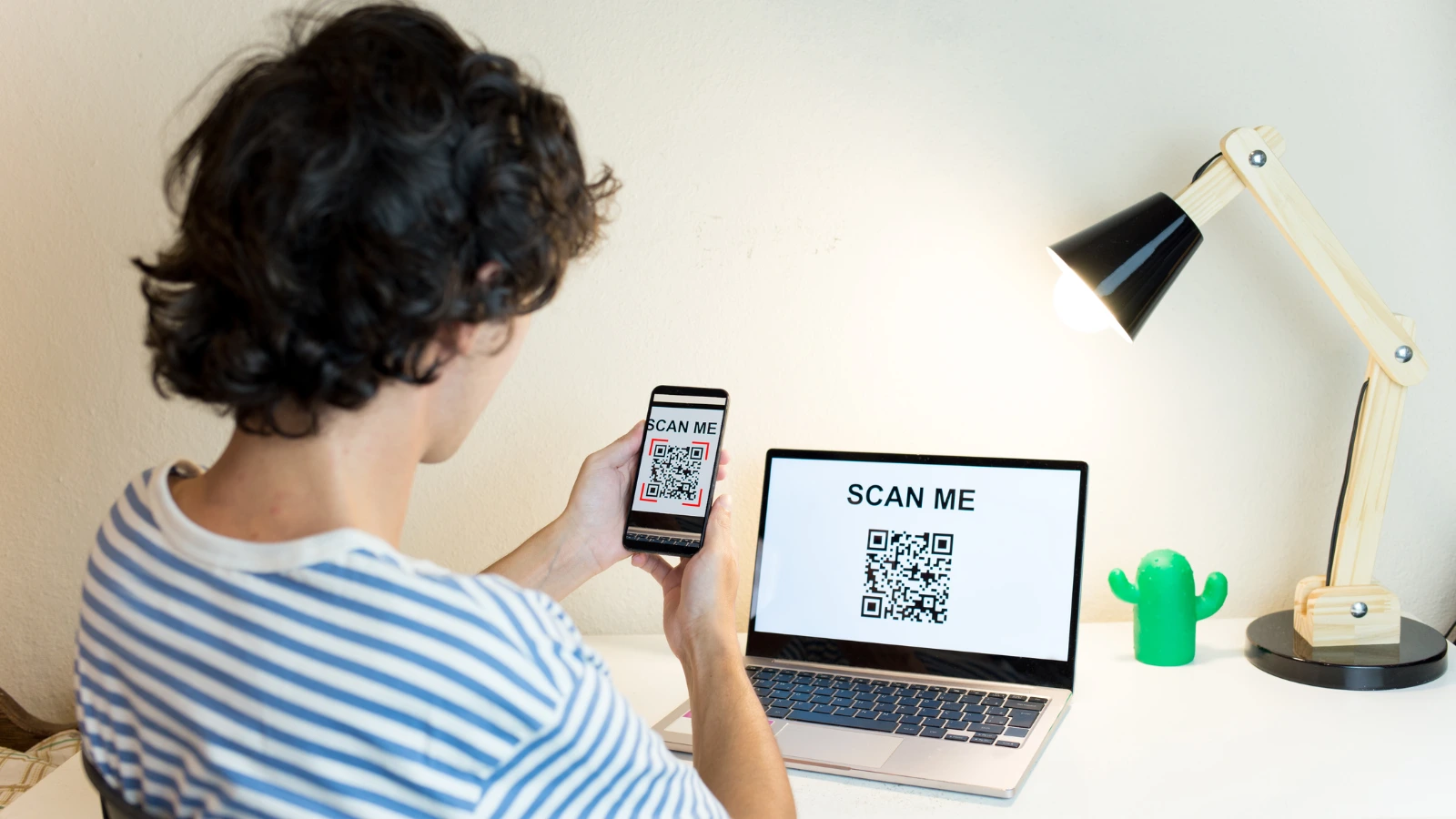Quick Response (QR) codes have become a widely adopted tool for instant access to information. They are used in everything from restaurant menus to product packaging and business promotions. However, many people often ask if a QR Code Online can still function when there’s no internet connection available. Although QR codes are commonly used to direct users to websites or online resources, they are much more versatile than most people realize..
Can QR Code Online Work Without Internet?
Yes, a QR Code Online can work without an internet connection—but it depends on what the code contains. QR codes that store direct information like a phone number, plain text, or contact details don’t need internet access. These are called static QR codes, and your device can read them instantly. On the other hand, QR codes designed to take you to a website or a cloud-hosted file do require internet access. These are dynamic QR codes. So, whether a QR code works offline depends entirely on the type of code and the kind of data it holds.
Create your first QR code now – it’s free and easy!
Types of Offline QR Codes
There are two main categories of QR codes: static and dynamic. Understanding the difference is crucial when determining if a QR Code Generator can function offline.
Static QR codes store fixed, unchangeable data. Once generated, the information stays the same. These codes work without needing an internet connection. When scanned, the device instantly displays the stored data, as it’s embedded directly in the code. This makes static QR codes ideal for areas with limited or no internet access.
Dynamic QR Codes, on the other hand, act as placeholders. They usually redirect to a short URL that connects to an online resource. These QR codes offer the flexibility of editing the destination content without changing the code itself. However, because the content is not stored within the code, internet access is required to retrieve it. As a result, dynamic QR codes are not suitable for offline use.
Types of QR Codes That Work Offline
Business Cards
QR codes on business cards have become a modern-day essential for professionals. Instead of manually typing phone numbers or email addresses, recipients can scan the code and instantly save contact details to their phones. Most of these QR codes use the vCard format, which works without an internet connection.
Product Labels
Manufacturers and retailers are increasingly adding QR codes to product packaging and labels. These codes can store detailed product specifications, user manuals, or warranty information in offline-accessible formats such as PDFs. This is particularly valuable for electronics, appliances, or DIY kits, where customers might want to refer to instructions without needing internet access. By scanning the code, users can open pre-downloaded files or view content stored directly on the product’s internal memory or accompanying materials.
Event Passes
Event organizers often use QR codes for access control at concerts, conferences, and other gatherings. Attendees receive a digital or printed QR code, which staff scan at entry points to confirm admission. These offline QR codes perform reliably, even in venues with weak or no internet. Since the validation systems usually connect to local databases, they can instantly authenticate the QR code and grant access—no live connection needed. This setup ensures quick and smooth entry management.
Wi-Fi Access
Connecting to Wi-Fi becomes easier with QR codes that contain the network name (SSID) and password. You can print and display these codes in cafes, offices, or homes, so visitors simply scan to join—no need to type long or complex credentials. The phone’s operating system reads the QR code and connects directly to the network, without needing a browser or internet access.
Museum or Tour Guides
Museums, galleries, and guided tours often utilize QR codes to provide audio commentary, historical information, or multilingual content. These QR codes may link to locally hosted files or apps preloaded on devices provided to visitors. Since the content resides on local servers or within the application itself, users can access rich media such as voice guides, video explanations, or 3D models without needing an internet connection, making the experience smooth and interactive in offline environments.
Learn More: Which QR Code is Right for You? Static QR Code vs. Dynamic QR Code Comparison.
Difference Between QR Code Online and Offline
| Feature | QR Code Online | QR Code Offline |
| Requires Internet | Yes (for most cases) | No |
| Stores data in the code | Usually a URL | Direct data (e.g., text, vCard) |
| Editable after printing | Yes (if dynamic) | No |
| Ideal use-case | Websites, forms, digital marketing | Access control, payments, contacts |
Advantages of Offline QR Codes
1. Reliability in low-connectivity zones
Offline QR codes are particularly useful in areas where internet access is limited or unavailable. Since they store information directly within the code itself—such as text, contact details, or a downloadable file—they don’t rely on network connectivity to function. This makes them highly reliable in remote areas, underground locations, or during outdoor events where cellular networks may be weak or overloaded. Users can scan the code and instantly access the embedded information without needing a data connection.
2. Faster access to data
Because offline QR codes don’t require a web request or server communication, the retrieval of information is immediate. This can be extremely beneficial in time-sensitive situations like checking boarding passes, displaying emergency instructions, or accessing maps during travel. The absence of loading time or buffering enhances the user experience and ensures smooth interactions.
3. Enhanced privacy, as no data is transmitted online
Offline QR codes offer a higher level of privacy and security since no personal or usage data is transmitted over the internet. This makes them an ideal choice for sensitive content or in environments where data protection is a priority. For instance, companies can use offline QR codes for internal processes, secure identity verification, or private event access, knowing that the data stays entirely local and out of reach from potential cyber threats.
To answer the key question: can QR Code Online work without internet? Yes, as long as the QR code contains static, embedded data, it will scan and function without an active connection. This makes offline QR codes extremely useful in many industries—from hospitality and events to travel and healthcare. When choosing between online and offline QR codes, understanding the end-user scenario is essential. That way, you can make the most of this flexible technology.
FAQs
Q1. What happens if you scan a QR code with no internet?
If the QR code leads to an online destination, nothing will load. However, if it contains offline data, it will display immediately.
Q2. Can I generate a Can QR Code Online Work Without Internet? and use it offline later?
Absolutely. As long as it holds static content like text or contacts, it can be scanned anytime, anywhere.
Q3. Is a Wi-Fi QR code offline or online?
Wi-Fi QR codes work offline because they directly encode the credentials needed to connect to the network.
Q4. How do I know if a QR code requires internet?
Check the content—if it’s a URL, it likely needs internet. If it’s plain text or contact info, it will work offline.
Generate, customize, and share QR codes now at Munshify.com.



